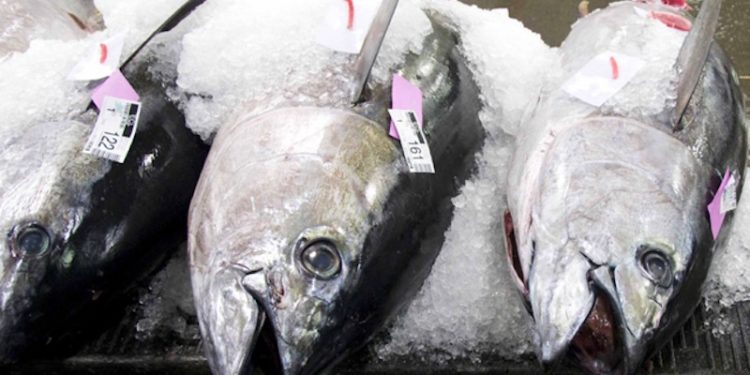Nine days of intense discussion on Atlantic tunas at the ICCAT plenary meeting has resulted in disappointment with the failure to able to reach a consensus to revise the management plan for tropical tunas, in particular for bigeye tuna, which is considered to be overexploited by ICCAT’s scientific committee.
According to European fishing industry body Europêche, the results of the plenary meeting are perceived as being poor and unsatisfactory by the European fishing fleet.
According to Europêche president Javier Garat, the European purse seine sector was anxious to restore the bigeye tuna stock in order to maintain the socio-economic sustainability of the EU fishing companies, their crews and the coastal communities that depend on it. The industry was willing to accept, inter alia, a reduction in the bigeye tuna TAC, a reduction in the number of active FADs per vessel and an extension of the fishing moratorium on FADs to the entire convention area for two months.
‘Conscious that the recovery of the bigeye tuna requires a fair burden sharing between all vessels targeting this species, our European purse seiners were ready to assume their share of responsibility. However, we regret that some ICCAT contracting parties, particularly the Asian countries, have opposed the adoption of such measures aimed at a quick recovery of the stock,’ Javier Garat said.
‘These states advocated unfair measures solely affecting European purse seiners which only represent 33% of the catches of bigeye tuna in the Atlantic, while rejecting the adoption of the slightest measure to restrict the activity of the Asian longliners which account for nearly 50% of the catches.’
He added that Europêche welcomes the adoption of a new stock management plan for the bluefin tuna stock in the Eastern Atlantic and the Mediterranean which will allow the European Union to adapt its fishing fleet to the increased fishing opportunities for 2019 (32,240 tonnes), particularly for the established fishing seasons and unavoidable by-catches due to the extension of the stock area.
However, Europêche hopes that the additional flexibilities granted to developing countries will be sufficiently controlled so as to not undermine the efforts and sacrifices made of the contracting parties to ICCAT over the last decade.
Javier Garat commented that concerning shark management, Europêche is disappointed with the opposition and veto of China, Korea and Japan to the ‘recommendation concerning the conservation of sharks caught in association with fisheries managed by ICCAT’, which included the obligation to provide more data to the scientists and to land the fins naturally attached to the carcasses, an obligation already implemented in the EU.









